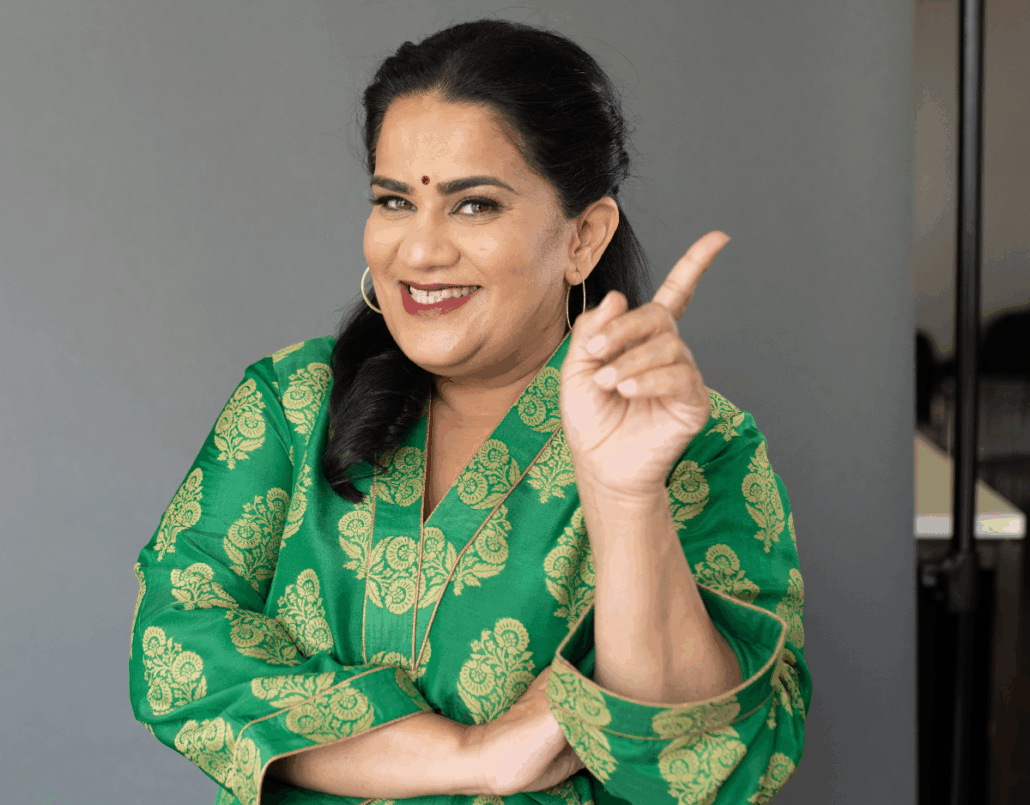You may have seen the comedian Zarna Garg. She has a refreshingly blunt approach to parenting. Zarna doesn’t ask her kids how they’re feeling or what she can do for them. Instead, she asks, “What will you get done today?” I think she might have been inspired by God. Or Indian mothers have a lot in common with God.
In this week’s Torah portion, “Lech L’cha“, God calls to Abraham with a command that roughly translates to, “Get up and go!” or, perhaps more colloquially, “Get up and get over yourself!” It’s exactly the kind of divine push that Zarna Garg might deliver to her own children. You would be mistaken if you thought God was saying “You do You!”
Zarna Garg jokes about her daughter dating a white boy. She treats it as a “you do you” moment, not worrying because the boy is Jewish—and she trusts that his mother will put an end to it. The joke works because the bias is mutual. Yet, in this scenario, the Jewish mother becomes an agent of divine order, enforcing the guardrails that keep us connected to traditions and values (even the ones we might not like).
The key to successful parenting, Zarna insists, is guilt. “All mothers, from the moment your kids are born, whisper in their ears: ‘You owe me,’” she says. “You owe me for life.” She then adds: “You’ll grow up, take care of me, and earn enough money to hire help to take care of me.”
I hear echoes of Jewish thought in that. Every morning, Jews recite *Modeh Ani*—“Thank you, God, for restoring my soul.” Before we even get out of bed, we’re reminded that we offer gratitude and focus on our divine purpose, motivated by a bit of holy guilt.
The mythos of the Jewish mother in the 20th century was to raise doctors, lawyers, and accountants—and to demand undying devotion in return. Today’s Jewish parents tend to take a gentler approach, guiding their children toward happiness rather than professional prestige. Perhaps, though, the immigrant Indian parent has preserved something we’ve lost: the sacred art of loving through expectation.
Zarna Garg admits that parenting is an endless improvisation: “Something new is always happening. You think, ‘What am I going to do? Do I say something? Do I react?’” In one podcast, she even asks her husband, “Would we be better off without children?”
God might relate. God (“Avinu”), our Father, was the original exhausted parent. Time and again, God watched the Hebrews stray, rebel, and disappoint. At one point, God considers wiping them out and starting fresh. Moses talks Him down, but soon after, God sighs, “I’m done talking to these people.”
Perhaps mothers are God’s better fabrications. Perhaps that is the “Divine feminine” we’ve failed to acknowledge, or maybe Zarna Garg would say, God is an Indian mother.
Maybe the real punchline is this: divine or human, parenting is the ultimate act of faith. We keep showing up, even when our children—or our people—don’t listen. We love them fiercely, we nag them relentlessly, and every so often, we threaten to start over. But in the end, like both Zarna Garg and God, we keep trying—because hope, humor, and holy guilt are what hold the family of humanity together.
Rabbi Evan J. Krame
If this reflection resonates with you, consider sharing it on social media—or simply take a moment to reflect on how you can create a better community.





